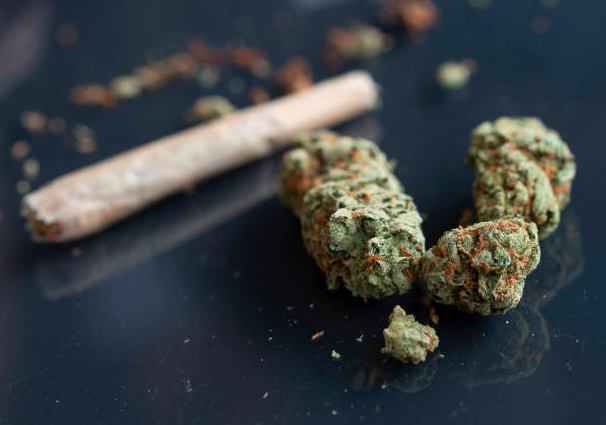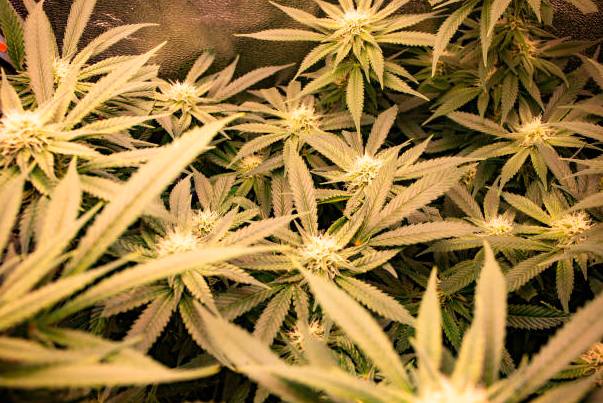Cannabis, also known as marijuana, weed, pot, or ganja, contains chemicals that alter perception and cognition.
Despite its recreational, medicinal, and spiritual uses, cannabis remains illegal in many areas, including Georgia, USA.
This piece will discuss Georgia’s current, historical, and potential future stance on cannabis legalization.
Additionally, it will explore legal alternatives to cannabis and associated risks in the state.
Georgia’s Cannabis Legality: What You Need to Know
No, cannabis remains illegal for recreational use in Georgia, with stringent penalties for possession, sale, trafficking, and cultivation.
Possession of 1 ounce or less is a misdemeanor, carrying up to a year in jail and a $1,000 fine.
Possession of over 1 ounce is a felony, punishable by up to ten years in jail and a $5,000 fine. Sales, trafficking, and cultivation can lead to up to 40 years in jail and hefty fines.
Despite this, some localities have enacted limited medicinal use and decriminalization measures in recent years.
Georgia’s Limited Medical Cannabis Program
Georgia operates a highly limited medical cannabis program, permitting individuals with specific debilitating conditions to possess and utilize low-THC cannabis oil.
Low-THC cannabis oil contains no more than 5% tetrahydrocannabinol (THC), the primary psychoactive compound in cannabis, and an equivalent amount of cannabidiol (CBD), which lacks psychoactive effects but may offer medicinal benefits.
Eligible Conditions for Georgia’s Medical Cannabis Program:
- Advanced stages of cancer or treatment-induced wasting syndrome, nausea, or vomiting
- Severe or end-stage amyotrophic lateral sclerosis (ALS)
- Seizure disorders related to epilepsy or head injuries
- Severe or end-stage multiple sclerosis (MS)
- Crohn’s disease
- Mitochondrial diseases
- Serious or end-stage Parkinson’s disease
- Severe sickle cell disease
- Severe Tourette’s syndrome
- Autism spectrum disorder in individuals aged 18 or older, or under 18 with severe autism diagnosis
- Melasma of the skin
- Serious or end-stage Alzheimer’s disease
- Severe AIDS
- Severe or end-stage peripheral neuropathy
- Hospice program enrollment, whether as a resident or visitor
- Intractable pain
- Post-traumatic stress disorder (PTSD) in individuals aged 18 or older directly exposed to or witnessing traumatic events.
Georgia patients must register with the Georgia Department of Public Health (DPH) and obtain a $25 Low THC Oil Registry Card to access low-THC cannabis oil, renewable annually.
Cardholders can possess up to 20 ounces of oil at all times. However, obtaining, producing, or carrying low-THC cannabis oil within Georgia’s borders is not permitted.
Patients must acquire the oil from another state with legal medical cannabis, potentially conflicting with federal and state regulations.
Cannabis Decriminalization in Georgia

While marijuana remains illegal statewide, some areas have reduced penalties for small possession. Decriminalization means treating the offense as a civil matter, typically resulting in fines instead of jail time.
However, decriminalization doesn’t equate to permission for cannabis use in these locations. It merely grants local governments discretion in enforcing state or city laws.
Consequently, individuals using cannabis may still face arrest, charges, and a criminal record under state law, especially when caught by state or federal authorities.
Delta 8 THC: Legal Cannabis Alternative in Georgia
Delta 8 THC, a new cannabinoid, offers a legal option for Georgians seeking a less potent alternative to traditional weed.
Derived from cannabis, delta-8 THC is similar to delta-9 THC but milder in effects, offering a gentler high with potential medical benefits such as nausea relief and pain management.
As it originates from hemp, containing less than 0.3% delta-9 THC, delta 8 THC is permitted in Georgia under the 2018 Farm Bill, which legalized hemp federally.
Available in various forms like oils, gummies, and cartridges, delta 8 THC products can be purchased online and in select stores.
However, consumers should exercise caution as these products lack FDA or DPH regulation and may contain contaminants or incorrect THC levels.
Potential risks such as impaired driving and drug interactions should also be considered.
Conclusion
While recreational cannabis remains illegal in Georgia, exceptions and amendments allow for limited medicinal use and decriminalization.
Understanding Georgia’s cannabis laws, penalties, and available options is essential for users and advocates alike.
Read also: Navigating Florida’s Cannabis Laws: Understanding Legal Boundaries and Regulations



